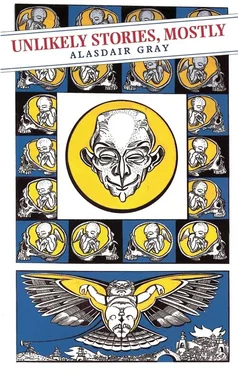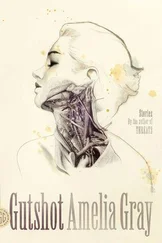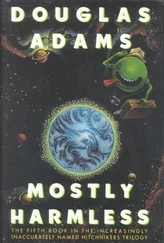And nowhere does the ambivalent Holy Fool appear more eccentric than in ‘Logopandocy’, the study of one of Scotland’s most endearing eccentrics, Sir Thomas Urquhart of Cromarty, “the mirror of perfection”, as he sees himself, in knightly attainment of the seventeenth century. Gray’s scholastic wit revels in this presentation of ‘The Secret and Apocryphal Diurnal’. It would be easy to miss the concealed identification with Urquhart that lies behind this charming, sad, bizarre account of the progress of a Wise Fool; easy, too, to miss the amount of Scottish satire, the detailed (but ultimately hopelessly confused) self-assessment by Thomas in the uproarious ‘Pro Me/Contra Me’ inventory of his assets. Here, for the first time, a Fool and his foolish countrymen are fully seen, squandering their talents abroad, fighting for opposite sides and causes, wilfully wasting themselves. Urquhart’s Logopandocy outlandishly applies Napier’s logarithms “to the grammar of an Asiatick people, thought to be the lost tribe of Israel, whose language predates the Babylonic cataclysm” with the end of “rationally reintegering God’s gift of tongues to Adam”. It is the pursuit of the goal of Alchemy in language, a linguistic Fool’s Gold, and on this and such quests the noble Urquhart destroys himself.
Or does he? A question arises now that was hinted at in Bohu’s final useless act of integrity, his brief tragic poem — and one which arises concerning Lanark’s final achievement, and Jock McLeish’s hard decisions in Janine . Is there, for all his posturing irrelevance, a point of self-recognition, of socially useless yet personally valid choice, which, in its final statement of truth, is the only significant possibility in a lunatic- and power-distorted world? Thomas disintegrates in a mental breakdown which can be compared with those of Thaw and McLeish. Gray apparently redeems Thomas’s tragi-comedy by saving him from his historical death and allowing him to find love in a strange land. But don’t be misled. The journey of these five stories is not over. The non-literary material, the illustrations between stories, now reveal their thematic function, which is to link the apparently disparate narratives, making them parts of a bigger and concealed story about a meta-protagonist, shadowy behind unlikely stories, telling indirectly of his background quest for meaning and love. On the flyleaf, an eccentric looking knight sails in a silly boat, blown by a zephyr; then, sword extended, perches precariously but defiantly, at its prow as the book opens. An inscrutable wizened Emperor-face (Gray? The saint of ‘The Start of the Axletree’? Emblem of the centralised power Gray so hates?) broods over all, watching the audacious human voyager; the voyager decays (note the richly-cuffed knightly hand becoming impoverished, gnarled, enclosed by a hand of love). But, while that is the last we hear in the story of Thomas Urquhart, seventeenth-century Scot, in fact his journey isn’t over. The drawings which began in the fly-leaf continue, Thomas’s boat is blown on, and, transmogrified, reappears in the next story ‘Prometheus’, in the twin guises of Prometheus and modern French thinker and poet Monsieur Pollard, “shy, fastidious, and arrogant”. Thomas had thought himself “come to the edge of the greatest and happiest discovery of my life” at the end of his account; Pollard thinks that he has just encountered a lady who can be sexual partner and witness to his elevated thought and life.
Nothing could seem less personal than these stories, grotesque and distant from the world of a Glasgow Art College student of the 1950s. But the Nastler-Creator of Lanark is a wilful and wayward conjuror, and in fact Parisian intellectual Pollard is yet another version of Duncan Thaw, Bohu, Kelvin Walker, McLeish, Lanark, Thomas Urquhart. Pollard’s “I can only represent Gods, and lonely intelligences, and multitudes viewed from a very great distance … To pay the printers … I went shabby and hungry …” surely recalls the similar complaints of Lanark, Thaw and Nastler? Even closer to home and to Duncan Thaw is Pollard’s student career; “I depressed my professors at the Sorbonne by finally submitting no thesis. A poet need not truck with bureaucrats.” But a new and yet more striking identification also enters here. Gray has Pollard explicitly link his loneliness with that of God, and his proud intellectual separation from humanity with God’s. “My infancy resembled that of God, my ancestor”, he tells us. Behind this “joke” of Pollard lies a strange metaphysic of Gray’s, which will extend itself in the Gray-Nastler-Lanark-Thaw manipulations of the novel and become most sophisticated in Jock McLeish’s recognition of God within himself, the inner voice which stops his suicide in Janine . This story marks the introduction of this final, spiritually enigmatic theme, which enables Gray to envisage a possible and positive ending to his Urquhart-like quest.
Pollard’s story doesn’t reach the qualified optimism of passages of Lanark or the stern acceptance of self in Janine . Pollard (the name suiting his human insufficiency, his blighted growth) fails in his attempt to find love, since Lucie will not accept his estimate of himself as mirrored in the myth of Prometheus, nor will she surrender to the intolerable selfishness which will use her as supporting anima . She tells him that he is “the cleverest, most deluded man I have ever met. Rewriting Prometheus Unbound is like rewriting Genesis , it can be done but who needs it? It is just another effort to put good wine in a filthy old bottle.” Both Pollard and Lucie recognise the sham of his “divine” vocation, his noble destiny. She reduces his grandiose self-projections to what could be seen as their only reality:
My poor dwarf, you are the last nineteenth-century romantic liberal. That is why corrupt government wishes to make you a national institution. Which brings me, beloved, to what you REALLY want from me: cunt. In your eyes it probably looks like an entrance to the human race …
The Holy Fool is often reduced in Gray’s work by the ferocious female. What emerges is a profoundly personal statement of despair about the mismatch of human needs and longings. Beautiful girls love worthless men; the central figure finds increasingly that talent and intelligence are no guarantee of success in sexual and emotional relations. Thus the identification with God is both admission of failure (who wants a relationship with something so inhuman?) and consolation for that failure. The story ends with a howl of anguish — trapped by the earthy manageress, his unloved mistress, he cries out:
Lucie, if you do not return I must fall forever into her abyss … Oh Lucie Lucie Lucie save me from her. The one word this poem exists to clarify is lonely. I am Prometheus. I am lonely …
And Gray’s carefully arranged illustrations and emblems now begin to tail off, till, after the drawing of Prometheus, naked, arms outstretched, falling, we are left with final drawings of the voyaging knight, now an old man, sailing on stoically till — watch the endpapers — he’s last seen edging past Arran, past Ailsa Craig which carries a sign (his destination?) “Glasgow 78 miles”. Thus Gray slyly connects his allegories to home. ‘Prometheus’ was even more revealing of this connection. While Lucie had read through Pollard’s version of the myth of Prometheus, recognising his distortion of the myth for his own sexual and emotional needs, Pollard had waited, vultures tearing at his liver, for her response — which was rejection. “Pollard” then makes his final revelation.
This story is a poem, a wordgame. I am not a highly literate French dwarf, my lost woman is not a revolutionary writer manque, my details are fictions, only my meaning is true and I must make that meaning clear by playing the wordgame to the bitter end.
Читать дальше












